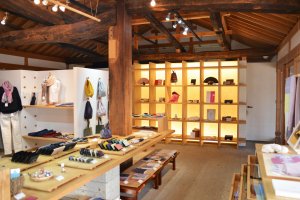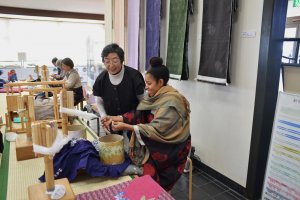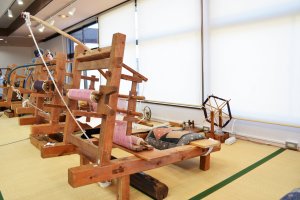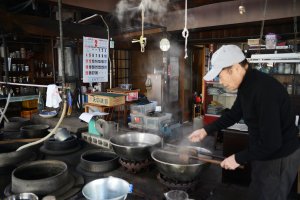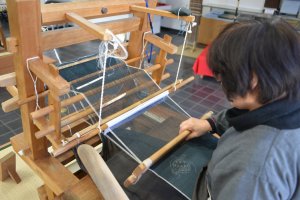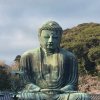Textiles have long played an important role in Japanese life. Japanese weavers and dyers developed their own distinctive styles with silk, hemp, cotton and other fibers, by using a range of weaves and decorative treatments. Japanese textiles are world-renowned for their intricate design and beautiful natural color, and although through the years new styles have evolved to reflect today’s trends, their original aesthetic and traditional technique has been retained.
One important textile center of Japan lies just 60-minutes north by train from Tokyo in a charming city called Yūki, located in Ibaraki Prefecture. It is a city rich in tradition and it is the birthplace of Yūki-Tsumugi. Yūki-Tsumugi is a Japanese silk-weaving technique with a 2,000-year history and is regarded as one of the highest-quality silk textiles in Japan. It is known for its strong, but light and soft characteristics giving it the reputation as being the finest of kimono textiles that can last for three generations and with a bit of cleaning and care even longer.
Yūki-Tsumugi is a technique so unique that in 1956 the Japanese Government designated it as a nationally important intangible cultural heritage and in 2010 it was inscribed on the UNESCO Representative List of the Intangible Cultural Heritage of Humanity. To produce Yūki-Tsumugi, it takes about 40 processes all done by hand, from taking the floss of silk worms and spinning it to yarn to dyeing the yarn then on to weaving, and depending on the detail it is a process that could take from several months up to one year or more for one 13 meter-long textile which would create one kimono.
The history and the technique of producing Yūki-Tsumugi is fascinating and one of a kind, it continues to be handed down from generation to generation, with many of the skilled men and women involved in the process still living in Yūki to this day. Taking a trip to Yūki you can learn first hand the history of Yūki-Tsumugi and experience some of the process through a number of the workshops that are offered.
You can find many of the cultural centers, museums, and shops within walking distance to each other and not far from the city’s main train station Yūki Station. Upon arriving at Yūki Station you will find the Tourist Information Center just outside to the right of the building. In the same building there is Kiraku Kimono Dressing Room where on weekends from 10AM - 3PM you can experience wearing your own Yūki-Tsumugi kimono. The cost for the daily rental is JPY 2,000 for females and JPY 2,500 for males.
There are a couple of recommended places to visit to learn about the history, technique and process of Yūki-Tsumugi. One is the Yūki City Traditional Crafts Center, they are open everyday from 10AM - 4PM, except Wednesdays. Here you can find a detailed overview in English of the history and each step in the process of Yūki-Tsumugi. There are even areas to experience spinning the silk floss into yarn for free or weaving your own item such as a coaster for JPY 1,500 while experiencing using the traditional weaving loom called a Jibata.
Another place is Tsumugi-no-Yakata, a facility that consists of several traditional Japanese-style buildings that surround a beautiful and peaceful courtyard. The facility has a museum showcasing the history of Yūki-Tsumugi, a workshop area for weaving experiences and indigo plant dyeing experiences, in addition to an exhibition hall and shop where you can view and or purchase a variety of items created from the Yūki-Tsumugi technique. Tsumugi-no-Yakata is open daily from 9AM - 5PM, except on Tuesdays.
While walking through the city, you will certainly pass many traditional shops selling local food products and delicacies of Yūki, such as miso, soy sauce, sake, and a sweet treat called yude manjyu (a boiled rice cake served warm with red bean paste). Don’t miss out on the many temples, shrines, and historic cultural properties to be explored in city as well. There are many places of interest to make a day trip to Yūki a fulfilling experience.










